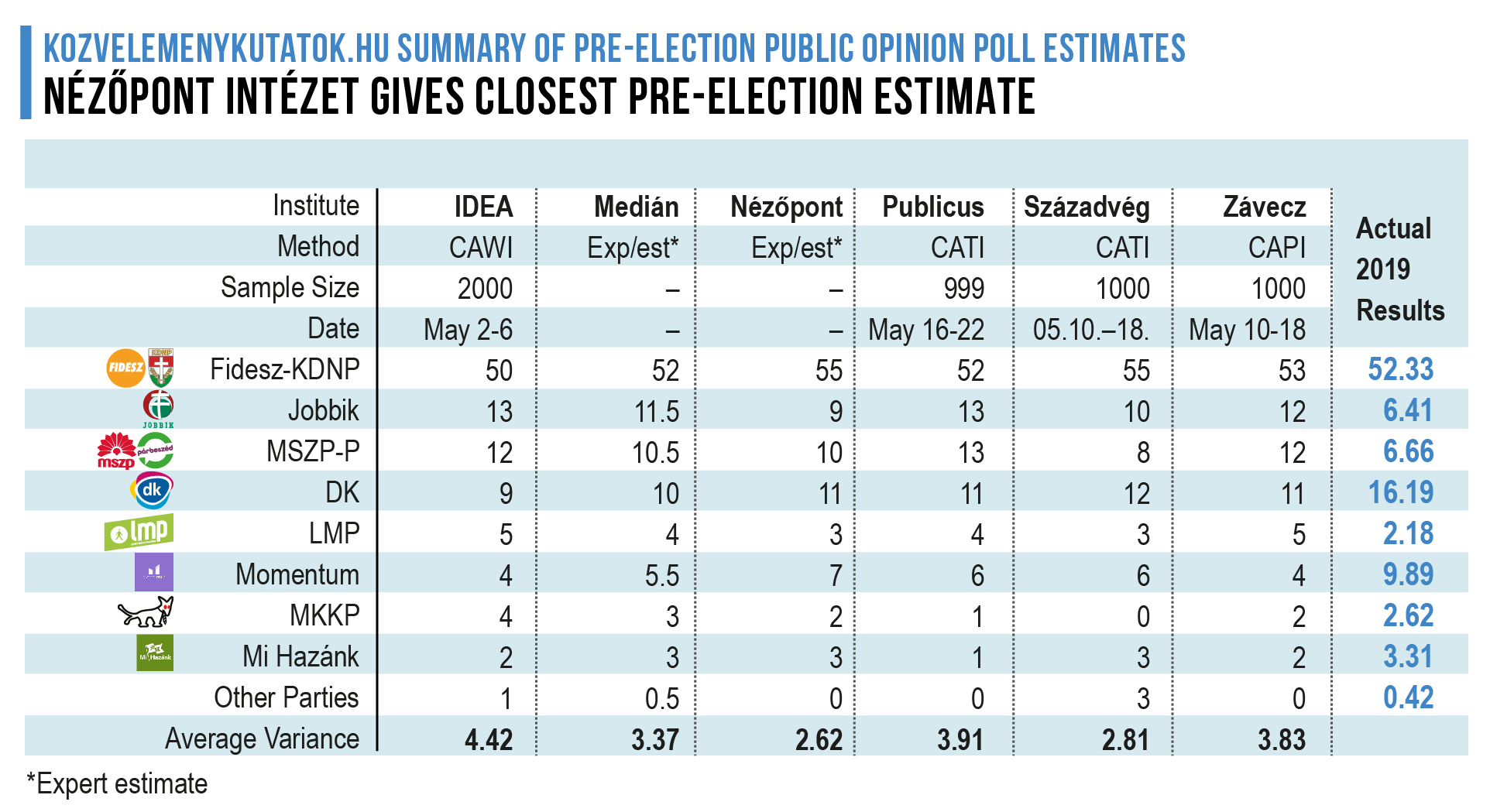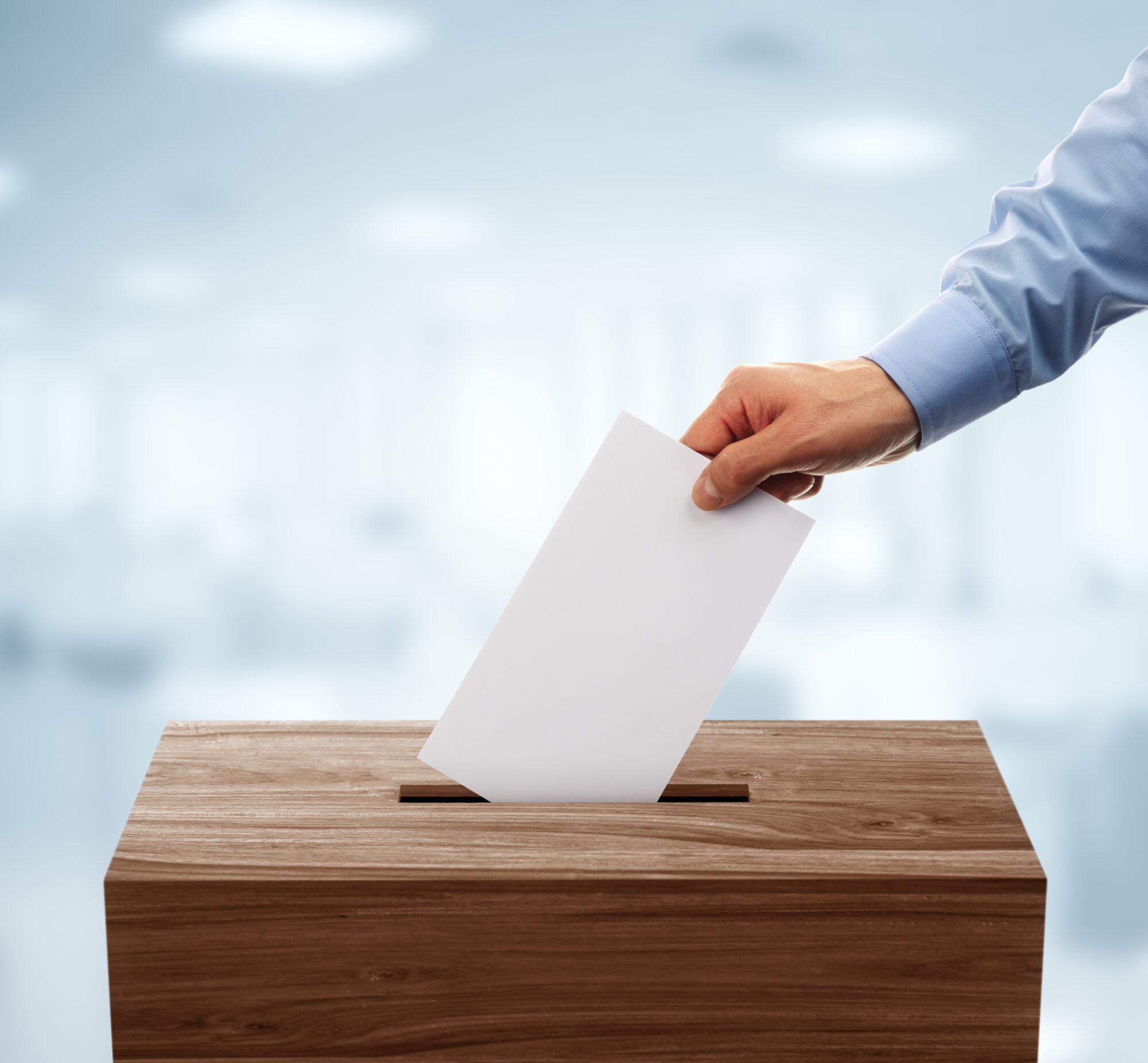An expert estimate by Nézőpont proved to be most accurate among pre-election estimates of vote ratios predicting party support within the margin of error.
A mid-May poll by Századvég and an expert estimate by Medián also belong here. If taking public opinion polls only into account, the right order for the top three spots is Századvég, Nézőpont and Medián.
Polling institutes get average marks for their take on this year’s European Parliamentary election. The Fidesz-KDNP victory of over 50 percent was predicted by all, but only a few could estimate the correct order among opposition parties finishing a few percentage points apart from one another. Nézőpont Intézet and Századvég were successful because of their ability to predict that Jobbik would miss out on a strong placement and their list would get one-digit results only. Nézőpont Intézet also gave the most accurate prediction of Momentum’s confident performance and the very low LMP score. IDEA Institute and Závecz Research predicted the strength of the two parties incorrectly, by dropping Momentum and measuring LMP above the minimum threshold. While expert estimates by Századvég and Nézőpont Intézet prognosticated a possible second place for the Democratic Coalition, other pollers put Ferenc Gyurcsány’s party in the fourth place.

Median’s expert estimate was accurate about voter turnout for Fidesz-KDNP but misjudged the outcome of the race for the second-place and predicted Jobbik as the strongest opposition party. Závecz Research was similarly good at sizing up support for Fidesz-KDNP and the opposition as a whole, but could not predict movements within the Left. Publicus’ measurement of support for the pro-government vote and the opposition as a whole was also accurate, however, they significantly overestimated it in the case of Jobbik and MSZP-Dialogue. Similarly to last year, IDEA Institute’s social media based research turned out to be the least accurate. Back then they significantly overestimated support for the Democratic Coalition, while this year they underestimated support for the party.
